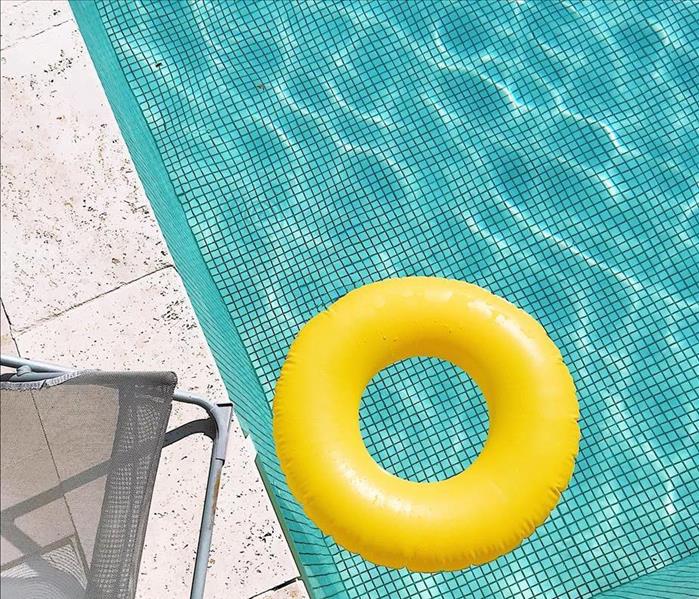3 Common Types of Summer Water Damage
7/7/2023 (Permalink)
As the temperatures rise and the sun shines brightly during the summer months, many of us seek refuge in the cool comfort of our homes. However, the summer season also brings with it the potential for water-related disasters that can wreak havoc on our living spaces. Lett's explore three common types of water damage that frequently occur in homes during the summer. By understanding these risks, we can take proactive measures to protect our properties and enjoy a worry-free summer.
Plumbing Leaks and Burst Pipes
The intense heat of summer can put a strain on your home's plumbing system, leading to leaks and even burst pipes. Extreme temperatures can cause pipes to expand and contract, weakening their structural integrity. When poorly maintained plumbing is exposed to extreme summer heat for a long period and then suddenly experiences rainfall, those pipes can burst. Additionally, increased water usage due to watering gardens, filling pools, or hosting outdoor gatherings can place added stress on plumbing infrastructure. Leaking pipes not only waste water but can also result in extensive damage to walls, floors, and belongings if left unattended. Regularly inspecting and maintaining your plumbing system can help identify and address potential issues before they escalate.
Roof and Window Leaks
Summer storms, though uncommon in our area, can bring heavy rainfall, and if your roof or windows have existing vulnerabilities, they can quickly turn into sources of water intrusion. Damaged or missing roof shingles, cracked window seals, or improperly installed flashing can allow rainwater to seep into your home, causing water damage to ceilings, walls, and furnishings. Regular roof inspections and window maintenance, including resealing and caulking, can help prevent water from finding its way into your living spaces during summer showers.
Basement Flooding
Basements are particularly susceptible to water damage, and summer rainstorms can turn them into a potential disaster zone. Poor drainage systems, clogged gutters, or improperly graded landscapes can allow rainwater to collect around your foundation, seeping into your basement through cracks, gaps, or porous surfaces. Basement flooding not only damages walls, flooring, and stored belongings but can also lead to mold growth and compromised structural integrity if not addressed promptly. Regularly maintaining your drainage systems, ensuring proper grading, and waterproofing your basement are essential preventive measures.
While summer is a time for relaxation and enjoyment, it is important to remain vigilant against potential water damage risks that can arise during this season. Plumbing leaks and burst pipes, roof and window leaks, and basement flooding are three common types of water-related disasters that homeowners may face. By implementing regular maintenance routines, conducting inspections, and addressing any vulnerabilities promptly, you can minimize the chances of experiencing water damage in your home. Remember, prevention is key to safeguarding your property and ensuring a stress-free summer season for you and your family.

 24/7 Emergency Service
24/7 Emergency Service
